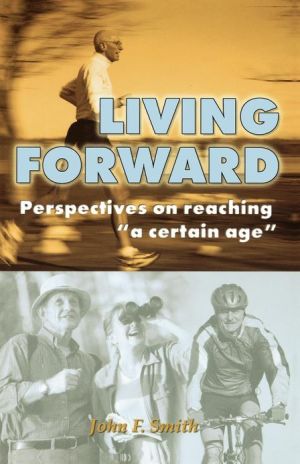

 |

|

The average rating for Living Forward based on 2 reviews is 3 stars.
Review # 1 was written on 2014-03-04 00:00:00 Jaime Amaya Jaime AmayaI loved his definition of being in your sixties as the "young-old" - those facing retirement, retired, or refusing to retire-but still vigorous, sharp, engaged. P. 10 The book pointed out the advantages of being "young-old" - a little more patience, some wisdom and a little more time. p. 13 "I realize that on a larger stage, all my life has been a kind of practice, sometimes fitful, sometimes superficial sometimes on the mark, for life lived now in retirement." p. 20 My take-away is we still have much to give. |
Review # 2 was written on 2015-02-13 00:00:00 Duane Cartmill Duane CartmillOf course the older language takes some getting used to but for a 100+ year old book, the authors had surprising insight into cognition viewed experientially, rather than experimentally. That is, the author was able to conduct many experiments but, lacking the technology to directly observe the physical substrate, e.g. neuronal firing, heart rate, etc, the conclusions are based on descriptions of introspective states. One path that I look for in all of my favorite books, is an underlying story or compelling metaphor that we find applied in other, seemingly unrelated, stories...a gelling narrative such as identifying common elements the hero's journey from different world myths and religious texts. This book has achieved this by its analysis of dream and somnambulistic states as they relate to not only our own latent, or "unconscious," powers of perception but to those even of a primitive shaman. We tend to get pretty cocky about the "silliness" of past science but, the fact is, all of our imaging technologies combined can't really tell us how we perform the most common sense tasks, or tell us anything really about our own introspective states. By extension, they can do very little to quantify the full range of our mental ( abilities. For example, although we account for the "Placebo Effect" in drug trials, we still can't explain the fact that there really *is* a Placebo effect. People really are getting better, apparently based solely on their believe, i.e. their own introspective state, that they are receiving an beneficial medicine. This book attempts to address the true nature of these states by an analogous survey of similar phenomena, e.g. dreams, hypnotism and somnambulism. |
CAN'T FIND WHAT YOU'RE LOOKING FOR? CLICK HERE!!!